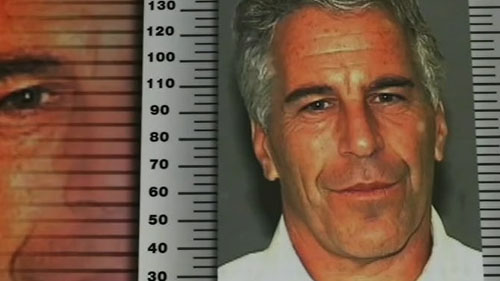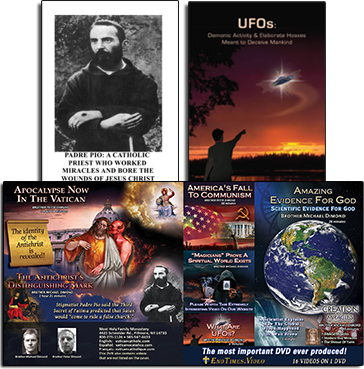June 21, 2009No, the radical schismatics are wrong again. First, we must again make it clear that we are talking about Pope Benedict XV (1914-1922), not Antipope Benedict XVI.
In the quote above, Pope Benedict XV definitely committed an error of articulation about the Redemption; for not all receive the benefits or merits of Christ’s death (as Trent defines). However, Pope Benedict XV’s statement is not teaching universal salvation; it’s not remotely comparable to John Paul II’s clear utterances of universal salvation; and it’s definitely not proof of manifest heresy. It’s simply an error which, if expressed obstinately and in direct defiance of the precise words of Trent, would be heresy. However, as it stands and considered in context, it’s simply an error of articulation and a demonstration of a less-than-perfect familiarity with the precise language of the Council of Trent.
Let’s begin by refuting the idea that Pope Benedict XV is teaching universal salvation in the citation above. If we look at the whole encyclical, we see that Pope Benedict XV makes it quite clear that he’s not teaching universal salvation; for in the very same document (and thus in the same extended context) he repeats the Athanasian Creed: that no man is saved without the Catholic faith.
Pope Benedict XV, Ad Beatissimi Apostolorum #24, Nov. 1, 1914: “Such is the nature of Catholicism that it does not admit of more or less, but must be held as a whole or as a whole rejected: “This is the Catholic faith, which unless a man believe faithfully and firmly; he cannot be saved” (Athanas. Creed). There is no need of adding any qualifying terms to the profession of Catholicism: it is quite enough for each one to proclaim “Christian is my name and Catholic my surname,” only let him endeavour to be in reality what he calls himself.”
In the very same encyclical, he clearly teaches that no one is saved without the Catholic faith. In John Paul II’s many utterances of universal salvation (or anywhere else for that matter), he never once said the equivalent.
So what is Pope Benedict XV saying when he declares that “the whole of mankind was freed from the slavery of sin by the shedding of the blood of Jesus Christ as their ransom”? The answer is that he is speaking of the propitiatory nature of the Redemption. It’s a dogma that Jesus Christ’s Redemption destroyed or atoned or satisfied or made up for man’s sins – the sins of every man of all time.
Pope Eugene IV, Council of Florence, “Cantate Domino” 1441, ex cathedra: “The Holy Roman Church firmly believes, professes, and teaches that no one conceived of man and woman was ever freed of the domination of the Devil, except through the merit of the mediator between God and men, our Lord Jesus Christ; He who was conceived without sin, was born and died, THROUGH HIS DEATH ALONE LAID LOW THE ENEMY OF THE HUMAN RACE BY DESTROYING OUR SINS, and opened the entrance to the kingdom of heaven, which the first man by his own sin had lost with all succession…” (Denz. 711)
Jesus destroyed every man’s sins in terms of a propitiation or atonement, so that every sin that would be forgiven was already forgiven by Jesus Christ and what He did on the Cross.
Errors of Cornelius Jansen # 4: “It is Semipelagian to say that Christ died or shed His blood for all men without exception.” – Condemned as false and heretical by Pope Innocent X, Cum occasione, May 31, 1658
When a man believes, is baptized and justified, it’s the merit of Christ’s Passion that is imparted or applied to Him; for Christ made up for and destroyed the sins of every man on the Cross.
According to the radical schismatics, the Bible must have been teaching heresy when it taught:
1 Timothy 2:6- “ [Jesus Christ] Who gave himself a redemption for all, a testimony in due times.”
Moreover, St. John the Baptist and St. John the Apostle must have been teaching heresy (according to the aforementioned schismatics) when they declared:
John 1:29- “… Behold the Lamb of God, behold him who taketh away the sin of the world.”
Christ takes away the sin of the world – the whole world. He freed mankind from sin, but not all receive the benefits of that Redemption. To put it another way, the fruits of the Redemption are not individually realized or actualized in all men. Only those who are incorporated into Christ receive the merits of the Passion.
Pope Benedict XV was simply stating the first part of the truth, that Christ’s Redemption applied to all and thus made up for (in the sense of propitiation) the sins of the whole world. His statement that no one is excluded from the benefits of the Redemption is simply an erroneous and imperfect attempt at articulating the truth that no one was excluded from what Christ did in terms of a propitiation or atonement. Jesus Christ’s Redemption applied to the whole world.
Throughout history, the terminology that some Catholics (not the Church itself) have used in expressing the two aspects of the Redemption – 1, that Christ forgave all men’s sins in terms of propitiation; and 2, not all receive the application of this forgiveness – has often been confusing and contradictory. For example, the regional council below (which was not infallible) equated being redeemed with being justified. Hence, it taught that not all men were redeemed.
Council of Quiersy, 853, Chap. 4.- “Christ Jesus our Lord, as no man who is or has been or ever will be whose nature will not have been assumed in Him, so there is, has been, or will be no man, for whom He has not suffered– although not all will be saved by the mystery of His passion. But because all are not redeemed by the mystery of His passion, He does not regard the greatness and the fullness of the price, but He regards the part of the unfaithful ones and those not believing in faith those things which He has worked through love[ Gal. 5:6], because the drink of human safety, which has been prepared by our infirmity and by divine strength, has indeed in itself that it may be beneficial to all; but if it is not drunk, it does not heal. (Denz. 319)
This regional council correctly stated that there was no man for whom Christ did not suffer. However, since it defined Redemption as actually receiving justification, it stated that not all men were redeemed. The popes, on the other hand, didn’t define that being redeemed strictly meant receiving the merits of the Passion. To them, the Redemption referred to the propitiation (the atonement or appeasement) that Christ made on the Cross for the sins of every man. As a result, they taught that all men were redeemed because all men’s sins were included in the atonement of the Cross. At the same time, they made it clear that not all receive the individual application of those merits which were won by Christ unless they cooperate with grace. That distinction, that being redeemed doesn’t necessarily mean being justified, is why Pope Alexander VII refers to Christ as the Redeemer of the human race – i.e., of all men.
Pope Alexander VII, Sollicitudo omnium eccl., Dec. 8, 1661: “… Jesus Christ, the Redeemer of our human race…” (Denz. 1100)
So, in summary, Pope Benedict XV’s words (in #1 of Ad Beatissimi Apostolorum) are simply an inaccurate articulation of the truth about the Redemption. They are not formally heretical. He was attempting to express the truth, but did it inaccurately. People don’t really expect the popes to have every line of Trent memorized, do they? As we’ve shown many times, popes can say things that are erroneous when discussing theological matters without it constituting heresy.
Some people argue that Pope Benedict XV’s words are equivalent to the following heresy of Antipope John Paul II. They are quite wrong. Let’s take a look.
John Paul II, Homily, June 6, 1985: “The Eucharist is the sacrament of the covenant of the Body and Blood of Christ, of the covenant which is eternal. This is the covenant which embraces all. This Blood reaches all and saves all.”
This statement, unlike Pope Benedict XV’s erroneous statement on the universality of the Redemption, is definitely a heretical utterance of universal salvation. First, John Paul II specifically says that Christ’s Blood reaches and saves all. Salvation is almost always associated with actually being saved or justified, not the potential of being saved or justified. Furthermore, in the same context, John Paul II speaks of the New Covenant. In this very context, he declares that all are part of this covenant. He’s referring to the new (and everlasting) covenant, which Jesus mentioned when instituting the Eucharist in His blood (Mt. 26:28). This covenant is the Church; it represents actual union with Christ. This covenant does not embrace all, as dogmatic definitions on the very words of Christ’s blood (and the covenant it signifies) confirm.
In addition, John Paul II consistently taught that all men are saved. There are many examples of that in this file: The Heresies of John Paul II – a comprehensive presentation. Two such examples are given below. So his statement above, that the Blood of Christ saves all, etc., is perfectly in line with his other teaching. It doesn’t stand out in contrast – as is the case with Pope Benedict XV’s words – with some statement (in the very same document) that no man is saved without the Catholic faith.
John Paul II, General Audience, Dec. 27, 1978: “Jesus Christ is the Second Person of the Holy Trinity become man; and therefore in Jesus, human nature and therefore the whole of humanity is redeemed, saved, ennobled to the extent of participating in ‘divine life’ by means of Grace.”
John Paul II, Redemptor Hominis (# 13), March 4, 1979: “We are dealing with each man, for each one is included in the mystery of the Redemption and with each one Christ has united Himself forever through this mystery.”
John Paul II says that all men participate in “the divine life.” The “divine life” refers to the state of grace. That means that all men are justified. In the second quote, John Paul II says that Christ is united to every man “forever.” That clearly indicates that all are saved.
So, in wrongly concluding that Pope Benedict XV was teaching universal salvation and heresy by his imperfect articulation of the universality of the Redemption – and that he was therefore an antipope – the radical schismatics have come up with another schismatic error which further confirms that they are truly outside the Church.
June 7, 2009First, we should make it clear that we’re talking here about Pope Benedict XV (who reigned from 1914-1922), not Antipope Benedict XVI.
The quote above is not proof of manifest heresy for several reasons. I will demonstrate this by a number of points. The primary reason is that there are two ways of considering the unity of the Church. This needs to be explained. 1) There is the external, core unity of the Church, by which all who have this unity of faith and sacraments are united in a single body. This unity is indivisible and unbreakable. It cannot be lacking.
However, there is also the internal unity or cohesion of the Church among the members who are within the core unity.
Allow me to draw an analogy which hopefully helps illustrate the point. After that, I will quote a father of the Church and a dogmatic council to confirm the point.
Imagine that a sphere represents the Church, and that all atoms within this sphere represent the Church members. The outer surface of the sphere (the circular edge) represents the external core unity of faith and sacraments in the Catholic Church. This is indivisible. All who violate the Catholic unity of faith and government separate themselves and are expelled completely from the sphere. They no longer reside within, but are now outside the sphere.
However, among the atoms within the sphere (i.e., the Church members), they can be closer to or farther apart from the other atoms (the other members) depending upon how closely united they are in judgment, will and motive. Hence, one could pray for unity or a greater unity among the atoms (or members) who are already within the core unity; so that they cease squabbling over unnecessary matters, so that they are more united in their spiritual pursuits, etc. For that reason, it can be legitimate speak of a need for greater unity in the Church only if one is doing so in the context of those Church members who are already within and not divided in faith. In fact, that’s exactly what we see in the case of St. Paul’s rebuke to the Corinthians in 1 Corinthians 1:10:
1 Corinthians 1:10- “Now I beseech you, brethren, by the name of our Lord Jesus Christ, that you all speak the same thing, and that there be no schisms among you; but that you be perfect in the same mind, and in the same judgment.”
St. John Chrysostom explains that St. Paul was not talking about differences of faith that arose, but differences of judgment and sentiment:
St. John Chrysostom, Homily 3 on 1 Cor. 1:10- “There is also such a thing as harmony of opinions, where there is not yet harmony of sentiment; for instance, when having the same faith we are not joined together in love: for thus, in the opinions we are one, (for we think the same things,) but in sentiment not so. And such was the case at that time; this person choosing one, and that, another. For this reason he [St. Paul] saith that it is necessary to agree both in ‘mind’ and in ‘judgment.’ For it was not from any difference in faith that the schisms arose, but from the division of their judgment through human contentiousness.” (NPNF1, Vol. 12, p. 11.)
We see that the members within the unity could be lacking in a certain degree of unity among themselves, as St. Paul and St. John Chrysostom confirm. This can arise from a difference in judgment and sentiment. Now, if this difference in judgment and sentiment reaches a certain level, it can and does result in actual schism which separates one from the sphere (the Church); but there can be lesser divisions in judgment and sentiment that don’t separate one from the Church. A case in point is the Great Western Schism and St. Vincent Ferrer. People were divided in judgment and sentiment on the issue of who the lawful pastors were, but those who were not obstinate (e.g., St. Vincent) were still within the sphere (the Church). A definitive proof for the point I’m making comes from the Fifth Lateran Council.
This council makes it clear that everyone who denies the faith is outside the Church, and that the Church is one in faith. However, it also speaks of a need for unity in the Church in terms of a greater agreement among those who are within the essential unity.
Here are just two quotes from the Fifth Lateran Council which clearly teach and reaffirm the dogma that the Church is one, and that it is completely united in its essential core unity of faith and government.
Pope Leo X, Fifth Lateran Council, Session 11, 1512-1517, on the abrogation of the Pragmatic Sanction: “… the person who abandons the teaching of the Roman Pontiff cannot be within the Church…” (D.E.C., Vol. 1, p. 640.)
Pope Leo X, Fifth Lateran Council, Session 11, 1512-1517: “… the holy Church of God, which by divine providence we preside over and which is indeed one, preaches and worships one God and firmly and sincerely professes one faith.” (D.E.C., Vol. 1, p. 636.)
However, we see that the council also speaks of a need for unity among those within the core unity.
Pope Leo X, Fifth Lateran Council, Session 11, 1512-1517: “Recently, in order that the Church, our spouse, might be kept in a holy union and use might be made by Christ’s faithful of the sacred canons issued by the Roman Pontiffs and general councils…” (D.E.C., Vol. 1, p. 638.)
Here we see that it’s speaking of the internal unity of those who are already “Christ’s faithful.” This quote is very similar to the one cited above from Pope Benedict XV. Here’s another quote from the Fifth Lateran Council.
Pope Leo X, Fifth Lateran Council, Session 11, 1512-1517: “Fostering everywhere the peace and mutual love so much commended by our Redeemer, let them not rend the seamless robe of Christ and let them refrain from any scandalous detraction of bishops, prelates and other superiors and of their state of life.” (D.E.C., Vol. 1, p. 637.)
Once again we see the pope and the council clearly speaking of a need for unity in the Church in terms of a greater mutual love and peace among the members who already hold the core unity of faith.
This should clearly show that Pope Benedict XV’s statement is not proof that he was a manifest heretic. Those who are asserting this are completely wrong. This is not to suggest that Benedict XV was necessarily a good or strong pope, or that he shouldn’t have been more precise or careful in his words. It is simply to point out that his statement is not proof that he was a manifest heretic. His statement is not comparable to the heretical teaching of Vatican II on the need for the “restoration of Church unity” because Vatican II clearly and explicitly says this with reference to people who are divided in essential faith and government (Protestants, etc.). That is blatantly heretical. Vatican II is not talking about the internal cohesion of those within the unity of faith, but rather that the core external unity of the Church is lacking because some people don’t accept the full Catholic faith or the Roman Pontiff. That is totally different.
So, once again we see that the warped radical schismatics (who are wrong on the issue of receiving sacraments, etc.) have come up with another schismatic error to confirm that they are not Catholic but truly outside the Church. This argument that we have just refuted was also promoted by the clueless schismatic named Frank, whom we’ve refuted over and over again. They desire to throw the pre-Vatican II popes out of the Church because they think it helps them more consistently argue their false position on receiving sacraments. For they are unable to refute our argument that if you may not go to a less obvious undeclared heretic who is offering a traditional form of liturgy today, then one could not have lawfully gone to similar heretics before Vatican II. So if they argue that all the pre-Vatican II popes were antipopes, they think it makes it easier for them to defend their ridiculous position that there was basically nowhere to receive sacraments before Vatican II as well.










 " />
" /> " />
" /> " />
" /> " />
" /> " />
" />





